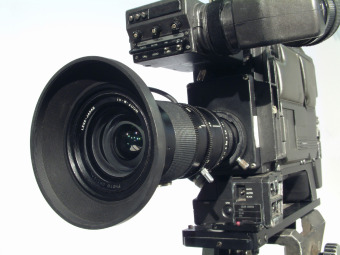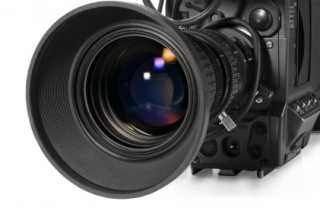 What's a physician's day look like if you're a medical reporter?
What's a physician's day look like if you're a medical reporter?
10:00 Welcome to my day! At my desk in the newsroom, I check the assignment rundown. I have not yet been given a news assignment. So I surf the web to see what the medical "buzz" is today. I assemble a list of possibilites to present to my news director and assistant news director. Considerations: How many people does the issue affect? Would it appeal to our target demographic of 30, 40, and 50-somethings? Is there a local connection? Then I wait for a decision.
11:25 My assignment has been deemed. "Walk Fast, Live Longer," it's slugged. It's a JAMA study led by a local researcher looking at walking speeds of those over 65 (a detail that will get only brief mention, for it's not "our demo"). Those who walked faster, lived longer. So now, I have to get hold of the lead author and set up an interview on camera. I need to make sure the assignment desk has a news photographer for me. To add to the pressure of the day, this is going to be a promoted piece for the 5:00, i.e. there will be commercials urging you to watch this very interesting piece.
11:46 I have received word the lead author is available, but not until 2:15. Immediate thought: Ugh. This will have to be a quick interview in order to get back in time to get this put together for the 5:00 news. The assignment desk has a photographer for me, but not until 1:00. To make the most use of our short time we'll get b-roll (video to accompany the spoken word for the piece) prior to the sit-down with the doc.
12:03 Since we will be short on time later, I've put together a basic outline of my report, including where the comments from the doc might be best suited. I've jotted down what b-roll might be useful, and what questions might provoke a more emotional response, rather than just a bland, informational one. After all, I have the information in front of me (I got the PDF from JAMA), and I can summarize it more efficiently in plain language for the viewer. They want to see the researcher is a caring human being who has analyzed an issue that has personal relevance to them.
1:20 My producer has a great idea to actually demonstrate the walking speeds. How to do this? We don't have a stop watch. We could ask the researcher to demonstrate. Or...we could go to a gym and set up three treadmills side by side, and have volunteers walk at the three different speeds. Now, to find a willing gym on short notice...
1:38 Set up the YMCA for 3:00...so now, quickly, let's knock out some b-roll and the interview.
1:50 On college campus near the doctor's academic office. Not many walking about in the study's age range, but my photog grabbed a few.
2:15 At the doctor's office, setting up the camera. We are ready to go, but the Voice of America phone interview with the doctor, which was supposed to begin at 2:00 but got a late start, is running over. To add to the stress, there are two additional people in the office with us fussing with the doctor's computer. It's clear they aren't figuring out what the problem is and might be a while.
Finally the doctor comes in, and miraculously and simultaneously, her computer people give up. The interview goes fine, in other words, I hear the sound bites I'm going to use as they spill out of her mouth. That is a gift, especially when time is limited. She has video clips of walkers on her computer that we shoot to add to our b-roll. Then the doctor has the idea to set up a demonstration of the different walking speeds in her study by having staff show us in her lab upstairs. It would save us a trip to the gym. But first, we get a few shots of the journal article in an actual hardcopy JAMA in her office -- bonus! It is now 2:50.
3:00 After discussing with the 5:00 producer the new demonstration opportunity and the late hour of the day, I called the Y to tell them thanks, but we won't be out there after all. Meanwhile, the staff is deliberating over how the lab demonstration will go. One problem: the study was done in metric -- generally unrelatable for the average viewer. After some conversion to miles per hour, the walking speeds are established, and we shoot. My talented and insightful photographer gets several different angles of the walking to make it easier on the editor later.
3:30 We're dashing back to the station, where I quickly have to log the tape (type out my interview and b-roll), write my piece, track it (record my words on tape), and get it into editing, where the editor pushes buttons ona machine to melds the words and images together. The process is interrupted by someone in the station's marketing department, wanting to see if I'm available to emcee a "Sesame Street Live" show.
5:15 My piece is in editing. I scurry to the ladies room to put on my HD (high-definition) makeup. I print my intro and tag.
5:30 I'm to be on X-cam? I'm to be on X-cam! (A live camera just outside the studio door thought to convey a sense of urgency and importance.) Problem is, there's no obvious X-cam set up and no photographer. I stomp up to the assignment desk to find out what's going on.
5:35 OK, now there is X-cam. Whew! I bundle up for the cold.
5:40 Five minutes to my hit, I go outside so the control room can see the shot and check my audio level. It occurs to me when I'm out there, my piece was still in editing when I last checked. I hope the finished product made it to the playback section.
5:45 I'm up! The anchors toss to me. I try to say my lines without looking cold, and my day is a wrap...aside from a few loose odds and ends, like writing a web version.
If you expected to hear that my day was full of glamour and stuff handed to me on a silver platter, sorry to disappoint you. No one writes for me, no one interviews for me, no one dresses or coifs me. In these matters, I'm on my own.
But on the other hand, I hope I showed you through my play-by-play of a typical day, television news is a team sport. If any one player drops the ball, the whole game, and the whole day's work, can fall apart.
Thanks for joining me for the inside look. Dr. Maria Simbra, Health Editor, KDKA-TV News.
 On Your Mark, Get Set, Go!
On Your Mark, Get Set, Go!




 Post a Comment
Post a Comment

